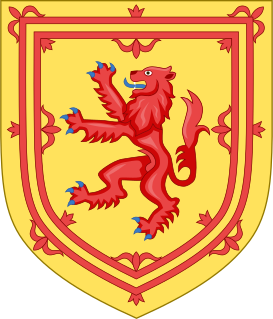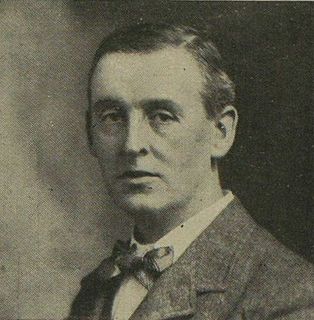Related Research Articles

The United Kingdom is a unitary state with devolution that is governed within the framework of a parliamentary democracy under a constitutional monarchy in which the monarch, currently Queen Elizabeth II, is the head of state while the Prime Minister of the United Kingdom, currently Boris Johnson, is the head of government. Executive power is exercised by the British government, on behalf of and by the consent of the monarch, and the devolved governments of Scotland, Wales and Northern Ireland. Legislative power is vested in the two chambers of the Parliament of the United Kingdom, the House of Commons and the House of Lords, as well as in the Scottish and Welsh parliaments. The British political system is a two party system. Since the 1920s, the two dominant parties have been the Conservative Party and the Labour Party. Before the Labour Party rose in British politics, the Liberal Party was the other major political party, along with the Conservatives. While coalition and minority governments have been an occasional feature of parliamentary politics, the first-past-the-post electoral system used for general elections tends to maintain the dominance of these two parties, though each has in the past century relied upon a third party, such as the Liberal Democrats, to deliver a working majority in Parliament. A Conservative–Liberal Democrat coalition government held office from 2010 until 2015, the first coalition since 1945. The coalition ended following parliamentary elections on 7 May 2015, in which the Conservative Party won an outright majority of seats, 330 of the 650 seats in the House of Commons, while their coalition partners lost all but eight seats.

The politics of Scotland operate within the constitution of the United Kingdom, of which Scotland is a home nation. Scotland is a democracy, being represented in both the Scottish Parliament and the Parliament of the United Kingdom since the Scotland Act 1998. Most executive power is exercised by the Scottish Government, led by the First Minister of Scotland, the head of government in a multi-party system. The judiciary of Scotland, dealing with Scots law, is independent of the legislature and the executive. Scots law is primarily determined by the Scottish Parliament. The Scottish Government shares some executive powers with the Government of the United Kingdom's Scotland Office, a British government department led by the Secretary of State for Scotland.

The 1999 New Zealand general election was held on 27 November 1999 to determine the composition of the 46th New Zealand Parliament. The governing National Party, led by Prime Minister Jenny Shipley, was defeated, being replaced by a coalition of Helen Clark's Labour Party and the smaller Alliance. This marked an end to nine years of the Fourth National Government, and the beginning of the Fifth Labour Government which would govern for nine years in turn, until its loss to the National Party in the 2008 general election. It was the first New Zealand election where both major parties had female leaders.

George Nicoll Barnes was a British Labour politician and a Leader of the Labour Party (1910–1911).

The 1922 United Kingdom general election was held on Wednesday 15 November 1922. It was won by the Conservative Party, led by Bonar Law, which gained an overall majority over the Labour Party, led by J. R. Clynes, and a divided Liberal Party.

The 1918 United Kingdom general election was called immediately after the Armistice with Germany which ended the First World War, and was held on Saturday, 14 December 1918. The governing coalition, under Prime Minister David Lloyd George, sent letters of endorsement to candidates who supported the coalition government. These were nicknamed "Coalition Coupons", and led to the election being known as the "coupon election". The result was a massive landslide in favour of the coalition, comprising primarily the Conservatives and Coalition Liberals, with massive losses for Liberals who were not endorsed. Nearly all the Liberal MPs without coupons were defeated, including party leader H. H. Asquith.
The National Democratic and Labour Party, usually abbreviated to National Democratic Party (NDP), was a short-lived political party in the United Kingdom.

The 2005 New Zealand general election on Saturday 17 September 2005 determined the membership of the 48th New Zealand Parliament. One hundred and twenty-one MPs were elected to the New Zealand House of Representatives: 69 from single-member electorates, including one overhang seat, and 52 from party lists.

The 2005 United Kingdom general election was held on Thursday 5 May 2005, to elect 646 members to the House of Commons. The Labour Party, led by Tony Blair, won its third consecutive victory, with Blair becoming the second Labour leader after Harold Wilson to form three majority governments. However, its majority fell to 66 seats compared to the 167-seat majority it had won four years before. This was the first time the Labour Party had won a third consecutive election, and remains the party's most recent general election victory.

The 2010 United Kingdom general election was held on Thursday 6 May 2010, with 45,597,461 registered voters entitled to vote to elect members to the House of Commons. The election took place in 650 constituencies across the United Kingdom under the first-past-the-post system.
An independent or non-partisan politician is a politician not affiliated with any political party or bureaucratic association. There are numerous reasons why someone may stand for office as an independent.
Seaham was a parliamentary constituency of the House of Commons of the Parliament of the United Kingdom that was in existence between 1918 and 1950. It elected one Member of Parliament (MP) by the first past the post system of election. Incorporating a lot of the mining area of the eastern part of County Durham around Seaham, it has a history of strong Labour Party support.
Parliamentary by-elections in the United Kingdom occur when a Member of Parliament (MP) vacates a House of Commons seat during the course of a parliament.

The 1920 Stockport by-election was a parliamentary by-election held on 27 March 1920 for the constituency of Stockport, in Cheshire.
The 1933 Kilmarnock by-election was a by-election held on 2 November 1933 for the British House of Commons constituency of Kilmarnock in Ayrshire.
The Coalition Coupon was a letter sent to parliamentary candidates at the 1918 United Kingdom general election, endorsing them as official representatives of the Coalition Government. The 1918 election took place in the heady atmosphere of victory in the First World War and the desire for revenge against Germany and its allies. Receiving the coupon was interpreted by the electorate as a sign of patriotism that helped candidates gain election, while those who did not receive it had a more difficult time as they were sometimes seen as anti-war or pacifist. The letters were all dated 20 November 1918 and were signed by Prime Minister David Lloyd George for the Coalition Liberals and Bonar Law, the leader of the Conservative Party. As a result, the 1918 general election has become known as "the coupon election".
The National Liberal Party was a liberal political party in the United Kingdom from 1922–23. It was created as a formal party organisation for those Liberals, led by Prime Minister David Lloyd George, who supported the Coalition Government (1918–22) and subsequently a revival of the Coalition, after it ceased holding office. It was officially a breakaway from the Liberal Party. The National Liberals ceased to exist in 1923 when Lloyd George agreed to a merger with the Liberal Party.

The 2015 United Kingdom general election was held on Thursday, 7 May 2015 to elect 650 members to the House of Commons. It was the first and only general election held at the end of a Parliament under the Fixed-term Parliaments Act 2011. Local elections took place in most areas on the same day.
This article is about the sponsorship of British Members of Parliament by mining trade unions.
References
- 1 2 3 F. W. S. Craig, British Parliamentary Election Statistics, 1918-1968, p.2
- ↑ G. D. H. Cole, History of the Labour Party from 1914, pp.87–88